Coping with COVID-19 anniversary trauma
“I think one way to look at what has happened this past year is that we have been fragmented. And as a fragmented people, whether emotionally, mentally, physically, that fragmentation needs to be brought back together,” said Kamya. We need to, “find ways to really do that authentically so that we can find our center selves.”
Responses from Simmons students about how they are feeling reaching the one-year anniversary of the pandemic.
March 13, 2021
Emptiness, irritability, anxiety, and an overall sense of unsettlement are all common experiences of what is known as an anniversary reaction, something that may be collectively affecting people as we reach the one-year mark of the COVID-19 pandemic.
This effect, also known as an “anniversary reaction,” is “defined as a unique set of unsettling feelings, thoughts or memories that occur on the anniversary of a significant experience,” according to Psychology Today.
Dr. Hugo Kamya, a professor at the Simmons School of Social Work since 2006, whose scholarly and practice interests includes trauma in children and families and health disparities, said that it is not uncommon for people to have an anniversary reaction of one kind or another to traumatic events, such as the pandemic.
Although it’s nearly impossible to be unaware that we have reached the one-year anniversary of the pandemic, Kamya noted that even without the influx of reminders in the media, anniversary reactions can take place without knowing the exact date of traumatic experiences.
Feelings are recreated as “parts of one’s whole being” which are trying to make sense of the events that have occurred, culminating in anniversary reactions according to Kamya. Sometimes symptoms of anniversary reactions “can be triggered by the weather, the light, or other seasonal reminders,” according to research shared in Psychology Today.
Experiencing the feelings of trauma being recreated for the first time may be distressing, which is why identifying the cause is an important part of coping and getting through the reaction.
Aside from the trauma of the pandemic at its core, Kamya says that everything that comes along with the pandemic creates a “domino effect” as the pandemic has impacted finances, home life, and an overall sense of security with life.
Additionally, the lack of interaction due to social distancing can be labeled as a traumatic experience, according to Dr. Daniel O’Brien, a public policy and urban affairs professor at Northeastern University who is leading a study on the effects of the COVID-19 pandemic on Bostonians.
As O’Brien’s research indicates, the pandemic has revealed disparities in people of different races, socioeconomic status, housing security, just to name a few.
According to Kamya, effects on mental health and the manifestation of trauma can present differently based on individuals’ identities, as well as the presence of prior trauma. He noted that new traumas can pull people back to times of fear, despair, insecurity of safety.
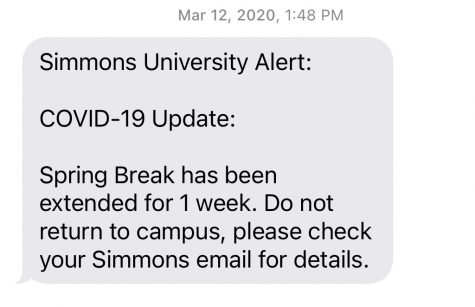
Kamya said he has seen an increase in anxiety, stress, and the development of depressive symptoms in students. Some even engaging in self-harming behaviors due to the psychological effects of the pandemic.
Fear and uncertainty that students face can affect their relationship with schoolwork, furthering distressing feelings. Kamya said that what may seem “minuscule” to some, can “tap into those very painful, vulnerable places for students.”
While vaccine rollouts and the arrival of warmer weather which allows for more outdoor socialization creating a feeling of hope for some, O’Brien said that approaching a “new normal” won’t be an immediate fix for the emotional weight of all that has taken place in the past year.
Breaking out of the habits of life in the pandemic will be difficult, and will “create mental health challenges that we don’t anticipate”, according to O’Brien. “I think we should be talking about it more because there are going to be people who encounter difficulties in that and are going to be surprised and upset with themselves.”
Kamya echoed that healing from the trauma of the pandemic and its fallout will take time and energy, and that finding opportunities to talk about experiences will have an important role to play.
“The point we talk about here in therapy is that one has to embrace these experiences and not run away from them. Because the more you run away from them, the more they follow you,” said Kamya. “I suggest that people really find good therapeutic, sort of opportunities to talk, therapy is wonderful.”
Aside from talk therapy, there are some things that people can do in the short term to support themselves through the anniversary reaction.
Understand that the pandemic is a traumatic experience and that having strong emotions is a normal response.
Kamya said that experiencing traumatic events is a “sense of internal rupture of oneself,” and is something that is important to recognize.
“I think people need to be very kind to themselves,” said Kamya. Anniversary reactions are “normal reactions of something as extraordinary as we have been going through.”
He suggests that people educate themselves about what is going for them in order to “get into their sense of self.”
Recognize that it will take time to heal.
As O’Brien noted, adjusting to the new normal will be difficult, and create more challenges as it is still a disruption to their current routine.
Although O’Brien says that “we may see this sort of continued internal strife persist for months,” there are still ways that people can work to heal and to restitute a sense of connectedness.
Find ways to take care of yourself and process all that has taken place.
Mindfulness and relaxation techniques, maintaining a sleep schedule, getting fresh air, and exercise are all good places to start, according to Kumya.
He even suggested bibliotherapy, reading books, poetry and other literature as a way to “understand the experiences they are going through so they don’t feel like they are alone with them.”
Intentionally setting aside time to self-care “could not be even more sort of important at this time than any other time.”
Be cognizant of what content you consume, and the conversations you are having about the pandemic.
With the talk of the anniversary, Kamya says that seeing the memories around them on social media and in the news “might recreate some of those traumatic experiences.”
“I think people need to be very thoughtful and cognizant of some of the things and seek sort of moments that add to their sense of being as opposed to moments that takeaway, and had them.” Think carefully about the media you consume and the conversations you’re having.
Find safe methods for social interaction with others.
As Julia Marcus, epidemiologist and professor at Harvard Medical School said in her article for The Atlantic, an all-or-nothing approach to social distancing is ineffective and can do more harm than good.
“It’s a matter of finding your sweet spot where you’re comfortable where you don’t feel like you’re straining too hard in either direction,” said O’Brien, noting the importance of finding a balance between safety, local regulations, and the probability of risk.
“Isolation has become a killer for many people in terms of understanding themselves and appreciating their being,” said Kamya. Having meaningful connections with people who “add to their sense of self” is important in terms of “rebuilding that mental self.”



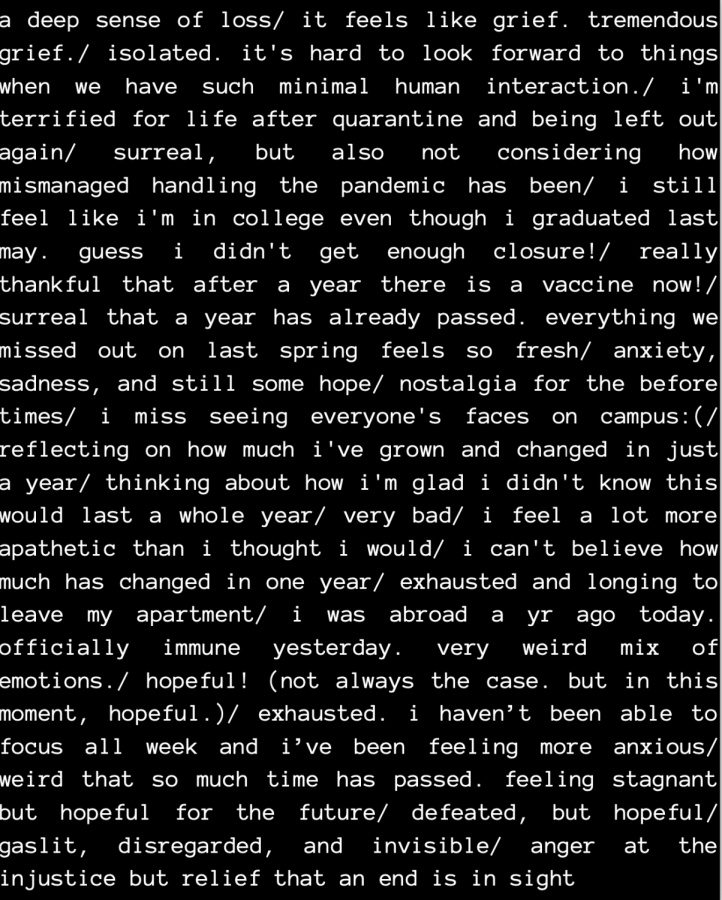






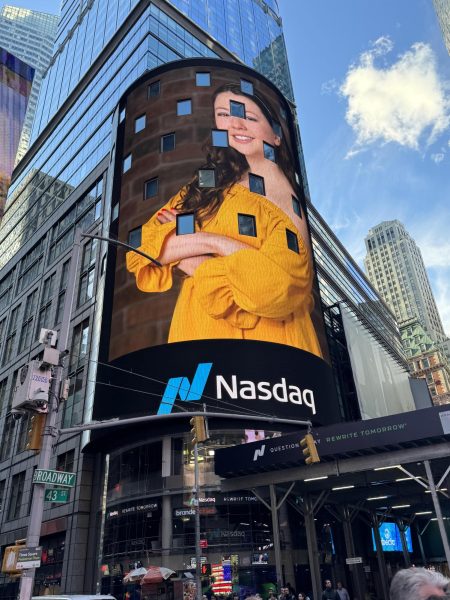
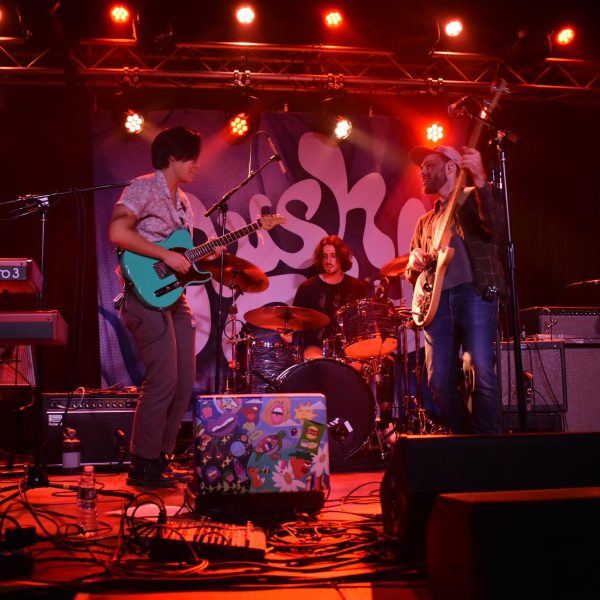
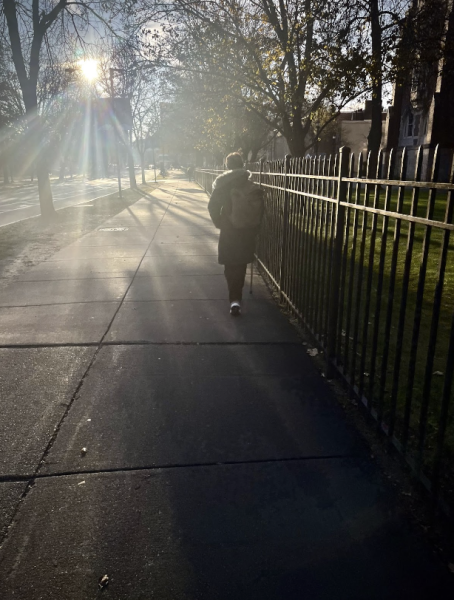
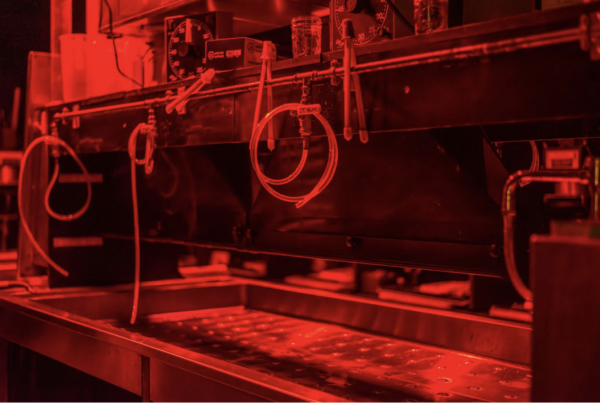
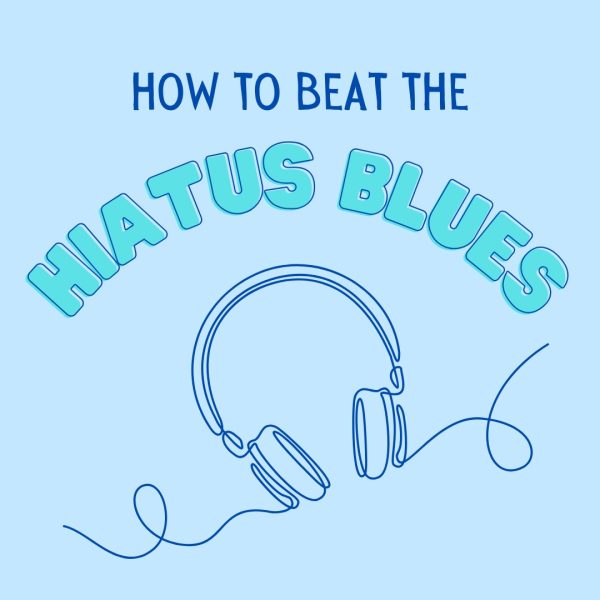
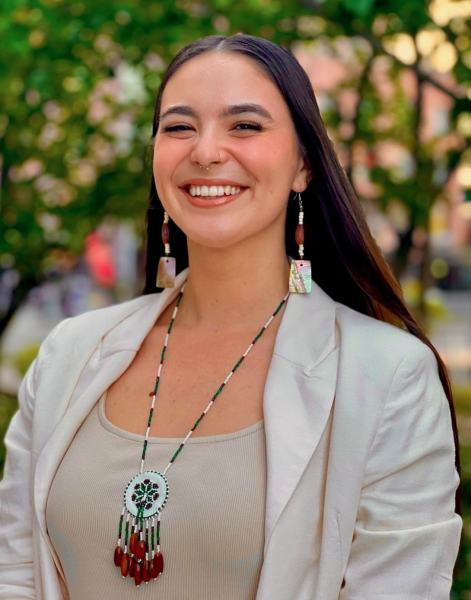


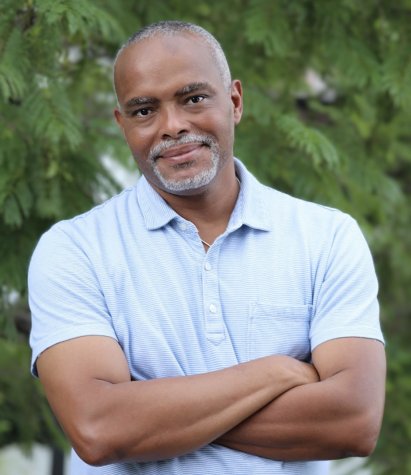
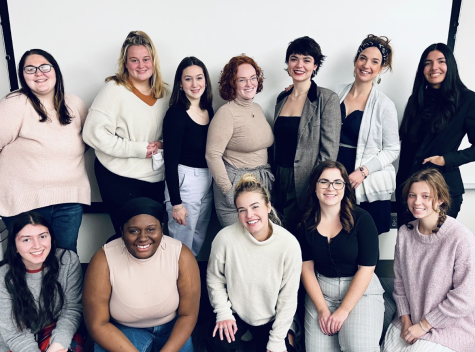
Alizah • Mar 13, 2021 at 1:23 pm
Great article, Iz. An important reminder to stay present, kind, and understanding!